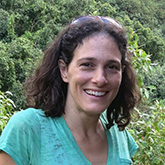View slides
Watch video:
Successful public transit systems increase the value of locations they serve. Capturing this location value to help fund transit is often sensible, but challenging.
This presentation will define location value capture, and synthesize lessons learned from six European and North American transit agencies that have experience with location value capture funding.
The opportunities for and barriers to implementing location value capture fall into three categories:
- agency institutional authority,
- agency organizational mission, and
- public support for transit.
When any of these factors is incompatible with a location value capture strategy, implementation becomes difficult. In four of the cases studied, dramatic institutional change was critical for success. In five cases, acute crisis was a catalyst for institutional change, value capture implementation, or both. Using value capture strategies to fund transit requires practitioners to both understand agency organizational constraints, and to view transit agencies as institutions that can transform in response to changing situations.
Deborah Salon studies transportation in cities with the goal of contributing to our collective understanding of how these systems work, and how policies and smart investments might improve them. The methods she uses range from qualitative, interview-based research to advanced econometric analysis. Topically, Salon 's research is divided into four related tracks: (1) Travel behavior, the built environment, and lifestyle choices in the United States, (2) Climate policy for the transport sector, (3) Urban transport, poverty, and economic development both in the cities of the developing world and in the US, and (4) Local government and transit agency institutional analysis. A common thread in all of her work is to inform policies that aim to reduce global automobile dependence in one way or another. This overarching goal is one that she is committed to, as it becomes increasingly clear that technology-only strategies are unlikely to be enough to make our transportation system environmentally sustainable. Salon holds a PhD in Agricultural and Resource Economics from the University of California, Davis. Before joining the faculty at Arizona State University's School of Geographical Sciences and Urban Planning, she completed a post-doctoral fellowship at Columbia University's Earth Institute and subsequently held a research appointment at UC Davis's Institute of Transportation Studies.
